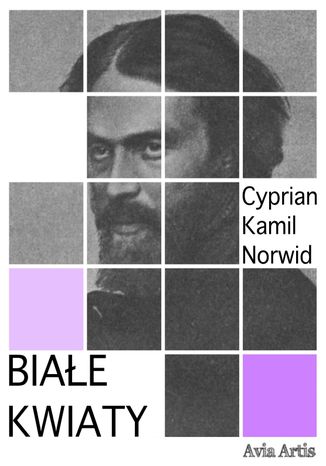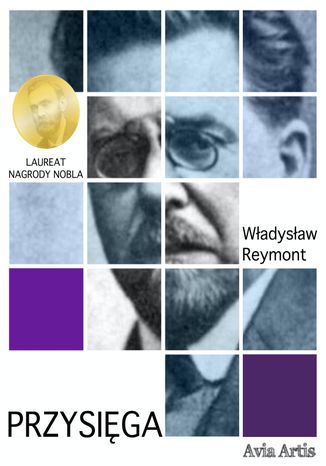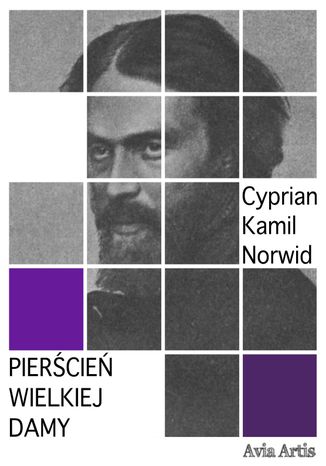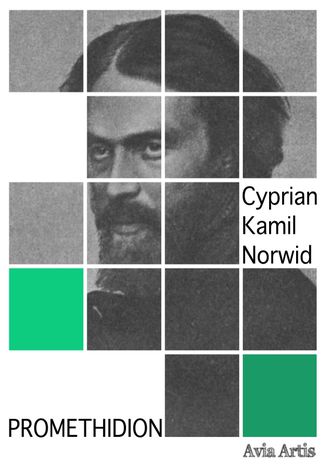Категорії
Електронні книги
-
Бізнес та економіка
- Біткойн
- Ділова жінка
- Коучинг
- Контроль
- Електронний бізнес
- Економіка
- Фінанси
- Фондова біржа та інвестиції
- Особисті компетенції
- Комп'ютер в офісі
- Комунікація та переговори
- Малий бізнес
- Маркетинг
- Мотивація
- Мультимедійне навчання
- Нерухомість
- Переконання та НЛП
- Податки
- Соціальна політика
- Порадники
- Презентації
- Лідерство
- Зв'язки з громадськістю
- Звіти, аналізи
- Секрет
- Соціальні засоби комунікації
- Продаж
- Стартап
- Ваша кар'єра
- Управління
- Управління проектами
- Людські ресурси (HR)
-
Для дітей
-
Для молоді
-
Освіта
-
Енциклопедії, словники
-
Електронна преса
- Architektura i wnętrza
- Безпека життєдіяльності
- Biznes i Ekonomia
- Будинок та сад
- Електронний бізнес
- Ekonomia i finanse
- Езотерика
- Фінанси
- Особисті фінанси
- Бізнес
- Фотографія
- Інформатика
- Відділ кадрів та оплата праці
- Для жінок
- Комп'ютери, Excel
- Бухгалтерія
- Культура та література
- Наукові та академічні
- Охорона навколишнього середовища
- Впливові
- Освіта
- Податки
- Подорожі
- Психологія
- Релігія
- Сільське господарство
- Ринок книг і преси
- Транспорт та спедиція
- Здоров'я та краса
-
Історія
-
Інформатика
- Офісні застосунки
- Бази даних
- Біоінформатика
- Бізнес ІТ
- CAD/CAM
- Digital Lifestyle
- DTP
- Електроніка
- Цифрова фотографія
- Комп'ютерна графіка
- Ігри
- Хакування
- Hardware
- IT w ekonomii
- Наукові пакети
- Шкільні підручники
- Основи комп'ютера
- Програмування
- Мобільне програмування
- Інтернет-сервери
- Комп'ютерні мережі
- Стартап
- Операційні системи
- Штучний інтелект
- Технологія для дітей
- Вебмайстерність
-
Інше
-
Іноземні мови
-
Культура та мистецтво
-
Шкільні читанки
-
Література
- Антології
- Балада
- Біографії та автобіографії
- Для дорослих
- Драми
- Журнали, щоденники, листи
- Епос, епопея
- Нарис
- Наукова фантастика та фантастика
- Фельєтони
- Художня література
- Гумор, сатира
- Інше
- Класичний
- Кримінальний роман
- Нехудожня література
- Художня література
- Mity i legendy
- Лауреати Нобелівської премії
- Новели
- Побутовий роман
- Okultyzm i magia
- Оповідання
- Спогади
- Подорожі
- Оповідна поезія
- Поезія
- Політика
- Науково-популярна
- Роман
- Історичний роман
- Проза
- Пригодницька
- Журналістика
- Роман-репортаж
- Romans i literatura obyczajowa
- Сенсація
- Трилер, жах
- Інтерв'ю та спогади
-
Природничі науки
-
Соціальні науки
-
Шкільні підручники
-
Науково-популярна та академічна
- Археологія
- Bibliotekoznawstwo
- Кінознавство / Теорія кіно
- Філологія
- Польська філологія
- Філософія
- Finanse i bankowość
- Географія
- Економіка
- Торгівля. Світова економіка
- Історія та археологія
- Історія мистецтва і архітектури
- Культурологія
- Мовознавство
- літературні студії
- Логістика
- Математика
- Ліки
- Гуманітарні науки
- Педагогіка
- Навчальні засоби
- Науково-популярна
- Інше
- Психологія
- Соціологія
- Театральні студії
- Богослов’я
- Економічні теорії та науки
- Transport i spedycja
- Фізичне виховання
- Zarządzanie i marketing
-
Порадники
-
Ігрові посібники
-
Професійні та спеціальні порадники
-
Юридична
- Безпека життєдіяльності
- Історія
- Дорожній кодекс. Водійські права
- Юридичні науки
- Охорона здоров'я
- Загальне, компендіум
- Академічні підручники
- Інше
- Закон про будівництво і житло
- Цивільне право
- Фінансове право
- Господарське право
- Господарське та комерційне право
- Кримінальний закон
- Кримінальне право. Кримінальні злочини. Кримінологія
- Міжнародне право
- Міжнародне та іноземне право
- Закон про охорону здоров'я
- Закон про освіту
- Податкове право
- Трудове право та законодавство про соціальне забезпечення
- Громадське, конституційне та адміністративне право
- Кодекс про шлюб і сім'ю
- Аграрне право
- Соціальне право, трудове право
- Законодавство Євросоюзу
- Промисловість
- Сільське господарство та захист навколишнього середовища
- Словники та енциклопедії
- Державні закупівлі
- Управління
-
Путівники та подорожі
- Африка
- Альбоми
- Південна Америка
- Центральна та Північна Америка
- Австралія, Нова Зеландія, Океанія
- Австрія
- Азії
- Балкани
- Близький Схід
- Болгарія
- Китай
- Хорватія
- Чеська Республіка
- Данія
- Єгипет
- Естонія
- Європа
- Франція
- Гори
- Греція
- Іспанія
- Нідерланди
- Ісландія
- Литва
- Латвія
- Mapy, Plany miast, Atlasy
- Мініпутівники
- Німеччина
- Норвегія
- Активні подорожі
- Польща
- Португалія
- Інше
- Przewodniki po hotelach i restauracjach
- Росія
- Румунія
- Словаччина
- Словенія
- Швейцарія
- Швеція
- Світ
- Туреччина
- Україна
- Угорщина
- Велика Британія
- Італія
-
Психологія
- Філософія життя
- Kompetencje psychospołeczne
- Міжособистісне спілкування
- Mindfulness
- Загальне
- Переконання та НЛП
- Академічна психологія
- Психологія душі та розуму
- Психологія праці
- Relacje i związki
- Батьківство та дитяча психологія
- Вирішення проблем
- Інтелектуальний розвиток
- Секрет
- Сексуальність
- Спокушання
- Зовнішній вигляд та імідж
- Філософія життя
-
Релігія
-
Спорт, фітнес, дієти
-
Техніка і механіка
Аудіокниги
-
Бізнес та економіка
- Біткойн
- Ділова жінка
- Коучинг
- Контроль
- Електронний бізнес
- Економіка
- Фінанси
- Фондова біржа та інвестиції
- Особисті компетенції
- Комунікація та переговори
- Малий бізнес
- Маркетинг
- Мотивація
- Нерухомість
- Переконання та НЛП
- Податки
- Соціальна політика
- Порадники
- Презентації
- Лідерство
- Зв'язки з громадськістю
- Секрет
- Соціальні засоби комунікації
- Продаж
- Стартап
- Ваша кар'єра
- Управління
- Управління проектами
- Людські ресурси (HR)
-
Для дітей
-
Для молоді
-
Освіта
-
Енциклопедії, словники
-
Електронна преса
-
Історія
-
Інформатика
-
Інше
-
Іноземні мови
-
Культура та мистецтво
-
Шкільні читанки
-
Література
- Антології
- Балада
- Біографії та автобіографії
- Для дорослих
- Драми
- Журнали, щоденники, листи
- Епос, епопея
- Нарис
- Наукова фантастика та фантастика
- Фельєтони
- Художня література
- Гумор, сатира
- Інше
- Класичний
- Кримінальний роман
- Нехудожня література
- Художня література
- Mity i legendy
- Лауреати Нобелівської премії
- Новели
- Побутовий роман
- Okultyzm i magia
- Оповідання
- Спогади
- Подорожі
- Поезія
- Політика
- Науково-популярна
- Роман
- Історичний роман
- Проза
- Пригодницька
- Журналістика
- Роман-репортаж
- Romans i literatura obyczajowa
- Сенсація
- Трилер, жах
- Інтерв'ю та спогади
-
Природничі науки
-
Соціальні науки
-
Науково-популярна та академічна
-
Порадники
-
Професійні та спеціальні порадники
-
Юридична
-
Путівники та подорожі
-
Психологія
- Філософія життя
- Міжособистісне спілкування
- Mindfulness
- Загальне
- Переконання та НЛП
- Академічна психологія
- Психологія душі та розуму
- Психологія праці
- Relacje i związki
- Батьківство та дитяча психологія
- Вирішення проблем
- Інтелектуальний розвиток
- Секрет
- Сексуальність
- Спокушання
- Зовнішній вигляд та імідж
- Філософія життя
-
Релігія
-
Спорт, фітнес, дієти
-
Техніка і механіка
Відеокурси
-
Бази даних
-
Big Data
-
Biznes, ekonomia i marketing
-
Кібербезпека
-
Data Science
-
DevOps
-
Для дітей
-
Електроніка
-
Графіка / Відео / CAX
-
Ігри
-
Microsoft Office
-
Інструменти розробки
-
Програмування
-
Особистісний розвиток
-
Комп'ютерні мережі
-
Операційні системи
-
Тестування програмного забезпечення
-
Мобільні пристрої
-
UX/UI
-
Веброзробка, Web development
-
Управління
Подкасти
“Białe kwiaty” to utwór Cypriana Kamila Norwida, polskiego poety, prozaika i dramatopisarza. Często jest on uznawany za ostatniego z czterech najważniejszych polskich poetów romantycznych. “Białe kwiaty” to część cyklu prozy którego drugim fragmentem są “Czarne kwiaty”. W obydwu autor nie starał się narzucać sobie jakiegokolwiek stylu literackiego – zależało mu na wierności faktom. Uważane są one często, za arcydzieło polskiej prozy. “Białe kwiaty” tworzą zbiór fragmentów zaczerpniętych z dziennika autora. Zawierają opisy estetyki ciszy, nieobecności i "przemilczenia", charakterystycznego dla twórczości Norwida. Brak w tym cyklu patosu i pretensjonalnej ekspresywności.
„Budowniczy Solness” to sztuka Henryka Ibsena, norweskiego dramatopisarza, uważanego za czołowego twórcę dramatu modernistycznego. „Budowniczy Solness” jest mistyczną oraz tragiczną historią dążenia do pojednania z Bogiem oraz próbowania przewyższenia Jego woli. Ten cudowny dramat przedstawia budowniczego, który na podłożu psychologicznym walczy z diabełkami i przezwyciężającego tragiczne przeszkody losu oraz próby, na które jest wystawiany przez Pana.
„Przysięga„ to opowiadanie Władysława Reymonta, pisarza, prozaika i nowelisty, laureata Nagrody Nobla w dziedzinie literatury. “ Naczelnik rzucił gazetę i gniewnie spojrzał na wchodzącego. A starszy, wyprężając się przy drzwiach, meldował pokornie: — Przypędziłem wszystkich. — Gdzie są? — W podwórzu. — Dobrze, niech poczekają. A pilnować, to buntownicy, rozumiesz? Starszy uśmiechnął się nieznacznie i jakoś dziwnie. — Ciężko poszło, a? — Nie, kazałem się im zebrać przed kancelaryą, to zaraz przyszli i zaczęli wołać, że wszyscy darli spisy i wszyscy są Polaki-katoliki, to i wszyscy są gotowi choćby na Sybir. Tak i całą wieś przypędziłem. — I nie bronili się? Szkoda! — szepnął cicho. — Nawet żołnierzom dali podwody, a sami szli spokojnie, jak barany, śpiewając pobożnie całą drogę. To dobry naród, posłuszny... — Nie twoja rzecz sądzić! Paszoł won! — zakrzyczał.” Fragment
“Pierścień Wielkiej Damy” to utwór Cypriana Kamila Norwida, polskiego poety, prozaika i dramatopisarza. Często jest on uznawany za ostatniego z czterech najważniejszych polskich poetów romantycznych. “Pierścień Wielkiej Damy” to dramat który stworzył całkowicie nowy gatunek dramatyczny. Jest to tak zwana biała tragedia. Sztuka ta łączy w sobie konwencje tragedii i komedii. Tragedia to odczucia głównego bohatera, zarysowane w wypowiedziach o charakterze pesymistycznej, patetycznej, pisane białym wierszem. Biała tragedia miała być pełna niedopowiedzeń i aluzji, które pełniły funkcję symboliczną w utworze. Komedia zaś to zwroty akcji, intrygi, zaskoczenie. Przymiotnik „biała” oznacza sztukę dramatyczną pozbawioną scen krwawych i tych kończących się śmiercią głównych bohaterów dzieła. Pod tym względem miała być przeciwieństwem tragedii szekspirowskiej.
“I część. Krzyż człowieczy” to zbiór wierszy Krzysztofa Kamila Baczyńskiego. Poety czasów wojny, jednego z przedstawicieli pokolenia Kolumbów, który zginął w czasie powstania warszawskiego. “Wiersze wybrane 1940-42” to zbiór 36 wspaniałych wierszy Krzysztofa Kamila Baczyńskiego. W skład tego zbioru wchodzą takie perły poezji jak: Pieśń o klęsce, Dzień sądu, W żalu najczystszym lub Z wiatrem.
“Promethidion” to utwór Cypriana Kamila Norwida, polskiego poety, prozaika i dramatopisarza. Często jest on uznawany za ostatniego z czterech najważniejszych polskich poetów romantycznych. “Promethidion” jest to poemat pisany wierszem. Stanowi on refleksję autora nad estetyką i pojmowaniem sztuki w nawiązaniu do filozofii Platona. W dziele tym autor opowiada się za koniecznością tworzenia odrębnej sztuki narodowej. Najważniejszym zadaniem sztuk plastycznych, jak uważał, jest ucieleśnianie ideału, upowszechnianie piękna. Działania te miałyby pokonywać dystans między twórcą a społeczeństwem, dawać sens moralny.
Maria Pawlikowska-Jasnorzewska
Zapraszamy do zanurzenia się w świat niezwykłej poezji z ebookiem "Surowy jedwab" autorstwa Marii Pawlikowskiej-Jasnorzewskiej, jednej z najwspanialszych polskich poetek. Ten wyjątkowy tomik wierszy łączy w sobie delikatność jedwabiu i surowość nieoszlifowanego diamentu, tworząc niezwykle bogaty w emocje i refleksje literacki klejnot. Pawlikowska-Jasnorzewska, znana ze swojej wrażliwości i wyrafinowanego stylu, prowadzi czytelnika przez subtelne niuanse ludzkich uczuć, odkrywając przed nim piękno codziennych chwil i głębokich przeżyć. "Surowy jedwab" to poetycka podróż, która oczaruje Cię swoim urokiem i pozwoli spojrzeć na świat z nowej perspektywy. Niech te wiersze staną się Twoją inspiracją i towarzyszem w chwilach zadumy, przynosząc ukojenie i literacką przyjemność.
“The Oakdale Affair“ is a novel by Edgar Rice Burroughs, an American fiction writer, who created such great characters as Tarzan and John Carter of Mars. This is the third book in the Mucker series. In the home of Jonas Prim, president of an Oakdale bank, a thief makes off with a servant's clothing and valuables belonging to Prim's daughter Abigail. Abigail is thought to be absent visiting Sam Benham, whom her parents want her to marry. When the Prims discover the theft and learn that Abigail never arrived at Benham's. The incidents are assumed to be connected to other crimes, the assault and robbery of John Baggs and the murder of Reginald Paynter, who had been seen with two men and a girl. The local paper speculates Abigail might have been involved with Paynter's murder. Mr. Prim hires a private eye.








